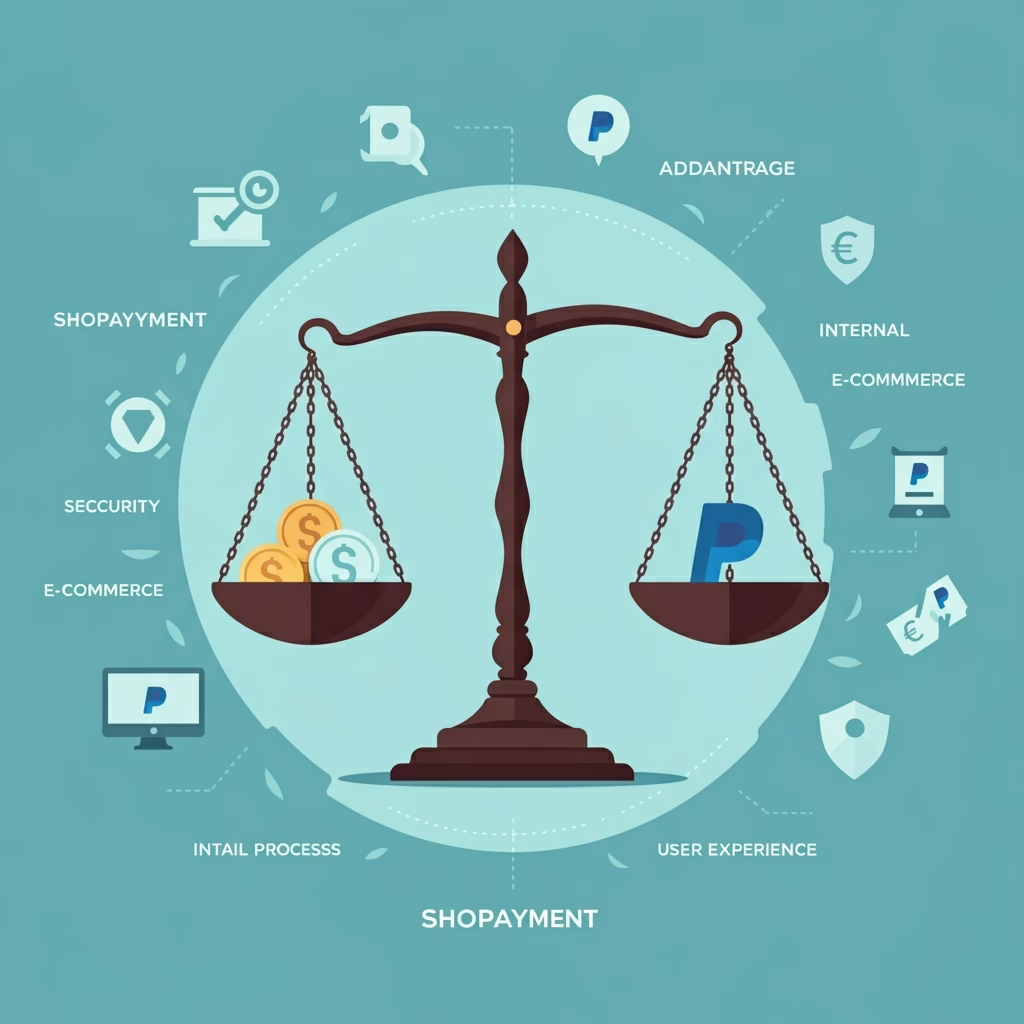Choosing the best payment processor makes or breaks your internet business. With transaction fees eating into profits and security demons haunting customers’ nights, sellers need a site that is affordable, reliable, and easy.
Two payment alternatives have caught web-based traders’ interest: Shopayment and PayPal. Even though PayPal leads in brand name identity, Shopayment is a good alternate that encompasses lower expenses as well as seller-friendly features.
This detailed comparison will help you decide which platform best meets the needs of your business, budget, and growth plan. We’ll go over it all from transaction fees to security protocols so that you can make an informed decision that affects your bottom line.
What is Shopayment?
Shopayment assumes the role of a revolutionary payment product that is designed specifically to serve sellers. Shopayment, as one of the newer companies, focuses on providing competitive rates on transactions and adopting robust security measures.
Shopayment works smoothly with top e-commerce platforms and supports all the major payment modes, from credit cards to online wallets and direct bank transfers. Shopayment provides real-time reporting and analytics functionality in its dashboard for sellers to see how much they have earned and how their customers behave.
Key benefits are immediate payment, personalized checkout, and tailored support for individual sellers. Transparency in fees is also given the spotlight, with no surprise charges or hidden fees.
PayPal The Time-Proven Colossus
PayPal is a brand name that is not in need of introduction. Billions of dollars have passed through the hands of the payment processor since 1998, and it’s become the family name for online payments. Its widespread use has meant that the PayPal brand enjoys customer trust that can boost sellers’ conversion rates.
The platform offers end-to-end payment capabilities, from basic payment processing through advanced features like subscription billing, invoicing, and buyer protection programs. PayPal’s environment is underpinned by PayPal Credit, allowing customers to purchase now and pay later, possibly driving greater average order values.
PayPal also has international presence in more than 200 markets and accepts more than 100 currencies, and therefore it is a suitable option for sellers who are required to work with international clients. The website also offers powerful developer tools and APIs for integrations.
Fee Structure Comparison
We need to be mindful of transaction fees so that wholesome margins of profit are not eroded. Both websites have different fee structures that can devastate your bottom line.
Shopayment Fees
Shopayment typically charges competitive rates at 2.4% + $0.30 for standard processing. Volume-based pricing exists, so larger-volume merchants can negotiate better prices. There are no monthly fees, setup fees, or contract terms.
There are additional charges for international transactions, usually around 1% above standard prices. Chargeback charges are $15 per dispute, roughly industry par.
PayPal Fees
PayPal’s standard rate is 2.9% + $0.30 per transaction on domestic payments. Worldwide transactions are up to 4.4% + fees depending on the country and foreign currency conversion requirements.
Additional features like PayPal Pro (for customizable checkout experiences) cost $30 a month plus per-transaction cost. Currency conversion earns 2.5% to 4% above exchange rates, depending on international sellers.
Security and Trust
Security is top of the list in handling customer payment information and business revenues.
Shopayment Security
Shopayment is PCI DSS compliant and uses state-of-the-art encryption to protect sensitive data. Shopayment has fraud detection and real-time transaction tracking. Being a newcomer, however, it lacks the broad trust metrics that come with PayPal’s decades-long reputation.
PayPal Security
PayPal’s security infrastructure has been battle-tested over decades. The platform offers buyer and seller protection programs, advanced fraud detection, and 24/7 monitoring. PayPal’s brand recognition often reassures customers who might hesitate to enter payment information on unfamiliar checkout pages.
Ease of Use and Integration
Both platforms prioritize user-friendly experiences, but they take different approaches.
Shopayment Usability
Shopayment’s interface centers on seller convenience and needs. Its dashboard offers smooth revenue tracking, convenient payout management, and straightforward reporting. Integration with most common e-commerce solutions such as Shopify, WooCommerce, and Magento is usually straightforward.
PayPal Usability
The documentation is full, but PayPal provides quite a number of integration approaches, which can be daunting to new users; it does integrate well with nearly all leading e-commerce packages and allows multiple checkout options, ranging from the redirect-based payment to embedded implementations.
Customer Support
Good customer service could really prove invaluable when there are issues with payments.
Shopayment offers seller-specific support with quicker turnaround times, usually a few hours for immediate concerns. The smaller platform is better able to offer one-on-one support.
PayPal offers 24/7 support in numerous ways such as phone, email, and chat. Response times are random, however, and customers occasionally complain about finding it hard to reach human agents for advanced concerns.
SEO and Business Considerations
Your payment processor selection can have an ancillary impact on your search engine optimization approach. Quick checkout pages and secure payment processes contribute to user experience signals, which are a preference for search engines.
PayPal checkout redirect sometimes ruins conversion rates and user experience metrics. Shopayment’s built-in solutions could lead to more seamless checkout flows that keep users on your site longer.
Which Platform is Best for Different Seller Types?
Choose Shopayment if you are:
High-volume merchant looking for competitive rates
Beginning business and need transparent pricing
Selling to local buyers on a primary basis
In need of customized customer support
Choose PayPal if you are:
Cross-border e-commerce business in multiple markets
First-time e-commerce merchant who needs highest available level of buyer trust
Offering subscription or recurring billing service
Need additional features like PayPal Credit integration
Making Your Decision
Whether to use Shopayment or PayPal ultimately boils down to your own business requirements and priorities. Shopayment has competitive fees and merchant-friendly functionality which will attract cost-sensitive merchants. PayPal offers unparalleled international reach and consumer acceptance that can drive conversion rates.
Start with PayPal if you’re just starting an e-commerce business because its general acceptance can build credibility in the minds of customers. As your company picks up speed and you have a better idea of what payment processing you require, you can balance Shopayment’s cost-effectiveness and special functionalities.
Know that most successful business traders use more than one payment processor so that the consumers have as many options as possible and reduce dependence on just the one vendor. The two sites basically run some percentage of your traffic through a test and decide which to use over the other in your individual business model and customers.


